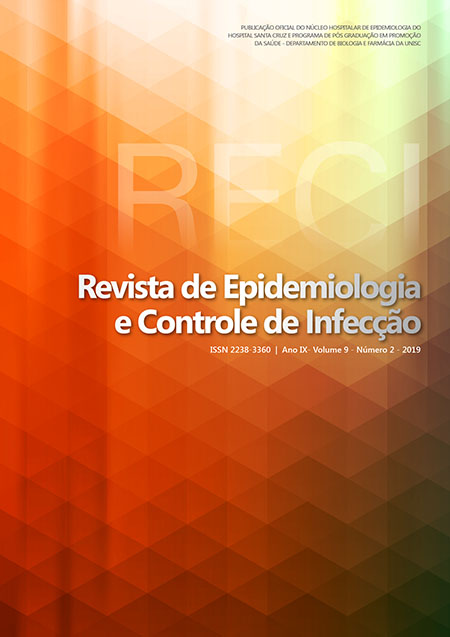Evaluation of the drug therapy of patients with systemic arterial hypertension and Type II diabetes mellitus attended at a basic health unit in the city of Xanxerê – SC
DOI:
https://doi.org/10.17058/reci.v9i2.13229Keywords:
Hipertensão. Diabetes Mellitus. Idosos. Interações Medicamentosas.Abstract
Background and Objectives: The elderly represent the portion of the population that uses the most drugs, so it is common to find medication errors among these patients. Hypertension and diabetes are the most common chronic diseases in the elderly, so antihypertensive and hypoglycemic drugs deserve attention and care in administration and dispensation. The objective of this study was to evaluate the pharmacotherapy prescribed to elderly patients with systemic arterial hypertension and type II diabetes mellitus who were treated at the Hélio Ortiz health unit in the city of Xanxerê-SC. Methods: The research was based on the analysis of pharmacotherapy, associated pathologies and socioeconomic data of patients with systemic arterial hypertension and type II diabetes mellitus. Results: The 20 elderly subjects included in the study had a mean age of 70,7 years, (DP = 6,1), with a minimum age of 60 years and a maximum of 84 years, 70% of the female gender and 30% of the male. The number of drugs used ranged from 2 to 10, out of a total of 116 drugs in use. The mean per person was 5.8 medications (DP=2,1). We identified 56 drug interactions. Conclusion: The data analyzed in this study demonstrate the existence of risks related to medication in patients with systemic arterial hypertension and type II diabetes mellitus. These results stimulate the development of process evaluation mechanisms aimed at reducing these risks, increasing the chance of positive therapeutic results and benefits for the patients. Keywords: Hypertension. Diabetes Mellitus. Aged. Drug Interactions.Downloads
Downloads
Published
How to Cite
Issue
Section
License
The author must state that the paper is original (has not been published previously), not infringing any copyright or other ownership right involving third parties. Once the paper is submitted, the Journal reserves the right to make normative changes, such as spelling and grammar, in order to maintain the language standard, but respecting the author’s style. The published papers become ownership of RECI, considering that all the opinions expressed by the authors are their responsibility. Because we are an open access journal, we allow free use of articles in educational and scientific applications provided the source is cited under the Creative Commons CC-BY license.


